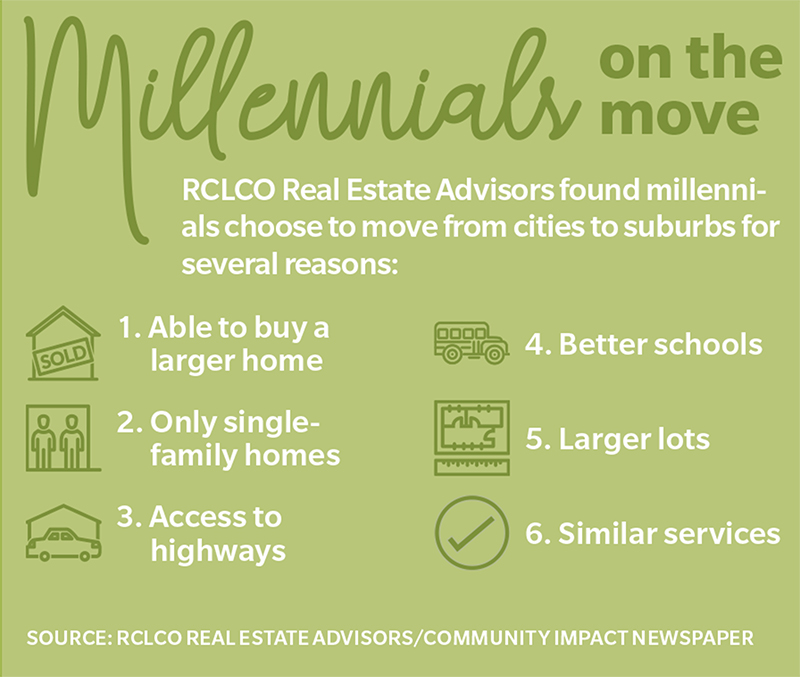Someone Better Tell the Met Council Planners: Millennials Moving to the Suburbs in Droves for Better Schools and Bigger Houses
Uh-oh. Someone at the “density is destiny” crowd in Minneapolis and at the Met Council that millennials may not be the lovers of urban living they have been chalked up to be. As, millennials marry later and have kids later, it may prolong their stay in the cities, but it appears that once they start having children they prioritize the larger spaces, more-affordable housing, and better schools found in the suburbs.

The story posted below originally appeared in Axios.
For years, an unwavering certitude of industry, think tanks, demographers, policy-makers and city planners everywhere has been that humanity is moving to the city: We just needed to figure out how to house, employ and feed everyone in a condensed space.
Yes, but: As more and more millennials marry and have children, that presumption is coming under scrutiny.
What’s happening: The forecast of global massive urbanization was important since it suggested that vast swaths of countryside would empty out, and we would adopt entirely new lifestyles.
- But, in a mea culpa at Brookings, William Frey, a demographer, said that, based on new census data, he has changed his mind on what he thought was a mass urbanization trend. He still thinks that cities will attract “young people — especially well-off, affluent millennials and post-millennials.”
- “But this won’t be most cities,” he tells Axios. “And, for this younger generation, what I see is more clustered developments within the suburbs, and smaller metros, greater reliance on public transportation and perhaps ride-hailing and self-driving cars.”
What happened: Frey said it might be “just a ‘return to normal’ of the suburbanization we saw prior to the Great Recession.” But Karen Harris, managing director at Bain Macro Trends, tells Axios that, for one thing, it’s probably time for millennials — given their stage in life — to start moving out to the ‘burbs with their kids.
Distance has changed: Harris also says that very few experts took note of the changed economics of space.
- It’s cheaper to move information from place to place
- Amazon’s model of cheap and fast delivery of goods has shortened perceived distances.
- Self-driving cars will also make people more likely to perceive places as closer together, since they won’t have to become aggravated driving there.
In terms of implications, according to Harris:
- Businesses need to adjust: They may have to build more locations, perhaps smaller and at greater distances. But that doesn’t necessarily mean astronomical costs, as among the new ways to deliver stuff will be inexpensive drones.
- Upping their game: Brick and mortar shops will have to “re-focus their mission on providing amazing customer experiences.”
- Big suburbs: By 2025, the population of exurbs may exceed those in urban centers for the first time. Developers will have to envision these exurbs as semi-self-contained communities not reliant on nearby cities.
